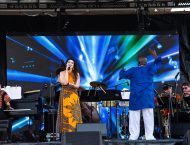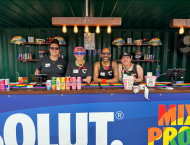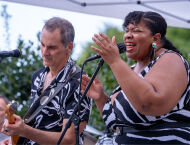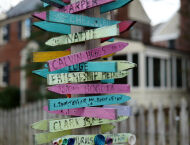Eat
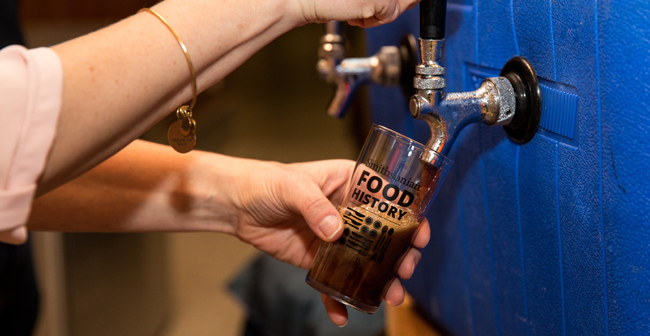 Photo: Courtesy of The National Museum of American History
Photo: Courtesy of The National Museum of American History
American Stories of Migration and Brews at the Smithsonian
October 26, 2017 @ 12:00am
A Vietnamese, an African-American, a Jamaican-born Chinese and a Bavarian. What do these people all have in common? They make American beer.
These four individuals each have a unique history that has shaped the beer they make, and just like them, American beer has a long history of migration and diversity. As the finale of the Smithsonian’s Food History Weekend, participants will get the chance to hear tales and taste beers from these four brewers, and learn just how American beer came to be on Saturday, October 28.
A regular feature at the museum, the After Hours series is a fun way to engage people in history. One way the museum does this is by tying food or drinks into the events, and this time around, they chose beer. But the Brewing History After Hours won’t focus on just any aspect of beer history; it will look at how immigration and migration have shaped American brewing.
The overall theme of Food History Weekend is “Many Flavors, One Nation,” and American Brewing History Initiative Historian Theresa McCulla says the goal is “to show how people on the move, brewing techniques and flavor preferences have changed over time in American history.”
Attendees will spend the evening eating and tasting beer in complimentary glasses while observing the Smithsonian’s Objects Out of Storage table, which will display some of the museum’s historic brewing objects. In addition, a scavenger hunt will take place where participants will have to track down items from various exhibits for the chance to win prizes. The highlight of the evening, however, is a panel discussion with the previously mentioned brewers.
An Bui is the founder of The Answer Brewpub in Richmond. Originally from Vietnam, his family relocated to Richmond where they opened a Vietnamese restaurant. Bui later turned it into a brewery, earning national recognition for his Belgian and American craft beers. Celeste Beatty is the founder of Harlem Brewing Company in New York City. She draws inspiration for her beers from the traditions of brew masters from Africa to America.
Oscar Wong is founder of Asheville, North Carolina’s Highland Brewing Company, named for the Scottish-Irish who immigrated to the very same area in the 1700s and 1800s. Wong is of Chinese descent and was born in Jamaica. Finally, Uli Bennewitz is founder of Weeping Radish Farm Brewery in Manteo, North Carolina, the state’s first craft brewery. Bennewitz immigrated from Bavaria in the 80s and helped change North Carolina legislation to allow brewers to sell beer to customers onsite. He brews by sticking to traditional German methods, using only hops, malt, yeast and water.
The Smithsonian’s interest in beer history doesn’t stop with this After Hours event, however. The museum created a three-year project to document the history of beer and brewing in America by establishing the American Brewing History Initiative.
“Brewing functions as a perfect lens [for] many big themes in our history as a nation,” McCulla says. “Whether you’re talking about immigration, business history, the history of evolving consumer taste [or] advertising, all those things you can examine through the lens of beer.”
In addition, McCulla adds, what makes American beer so unique is that it is a combination of styles, techniques and ingredients from people from all over the world that have shaped what it is today. In the 1950s, at the beginning of the “craft beer revolution,” brewers looked to other countries like Belgium, Germany and England for inspiration.
“Now it’s 50-plus years later,” McCulla says, “and other brewers throughout the world are looking to America for their ideas.”
Check out the Smithsonian’s Brewing History After Hours event on Saturday, October 28 from 6:30-9 p.m. Tickets are $40.
Smithsonian National Museum of American History: 1300 Constitution Ave NW, DC; 202-633-1000; www.americanhistory.si.edu


